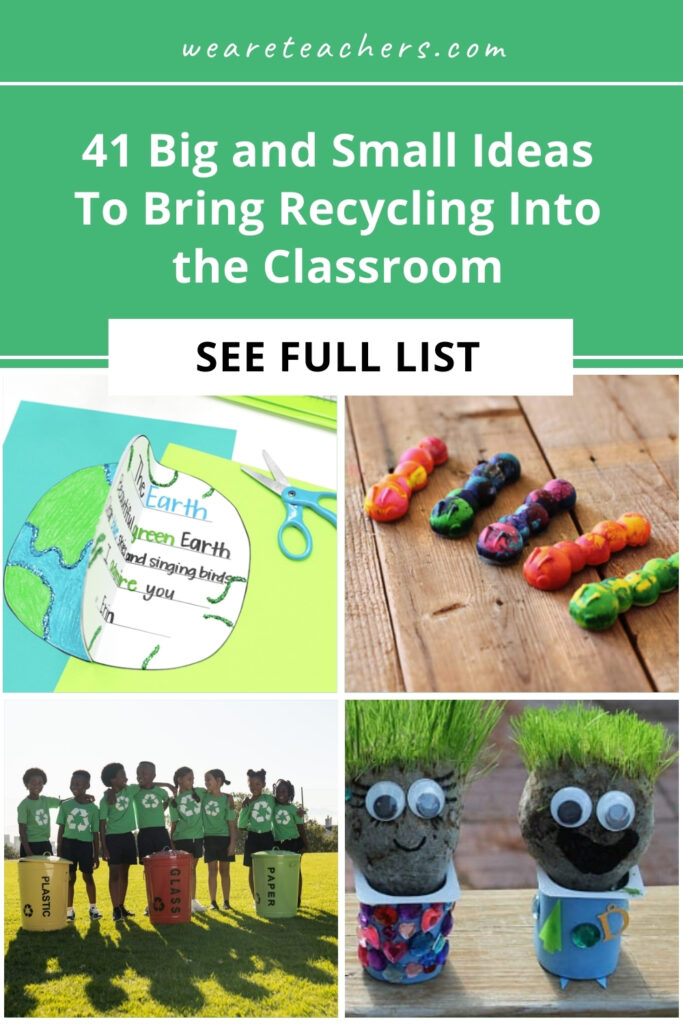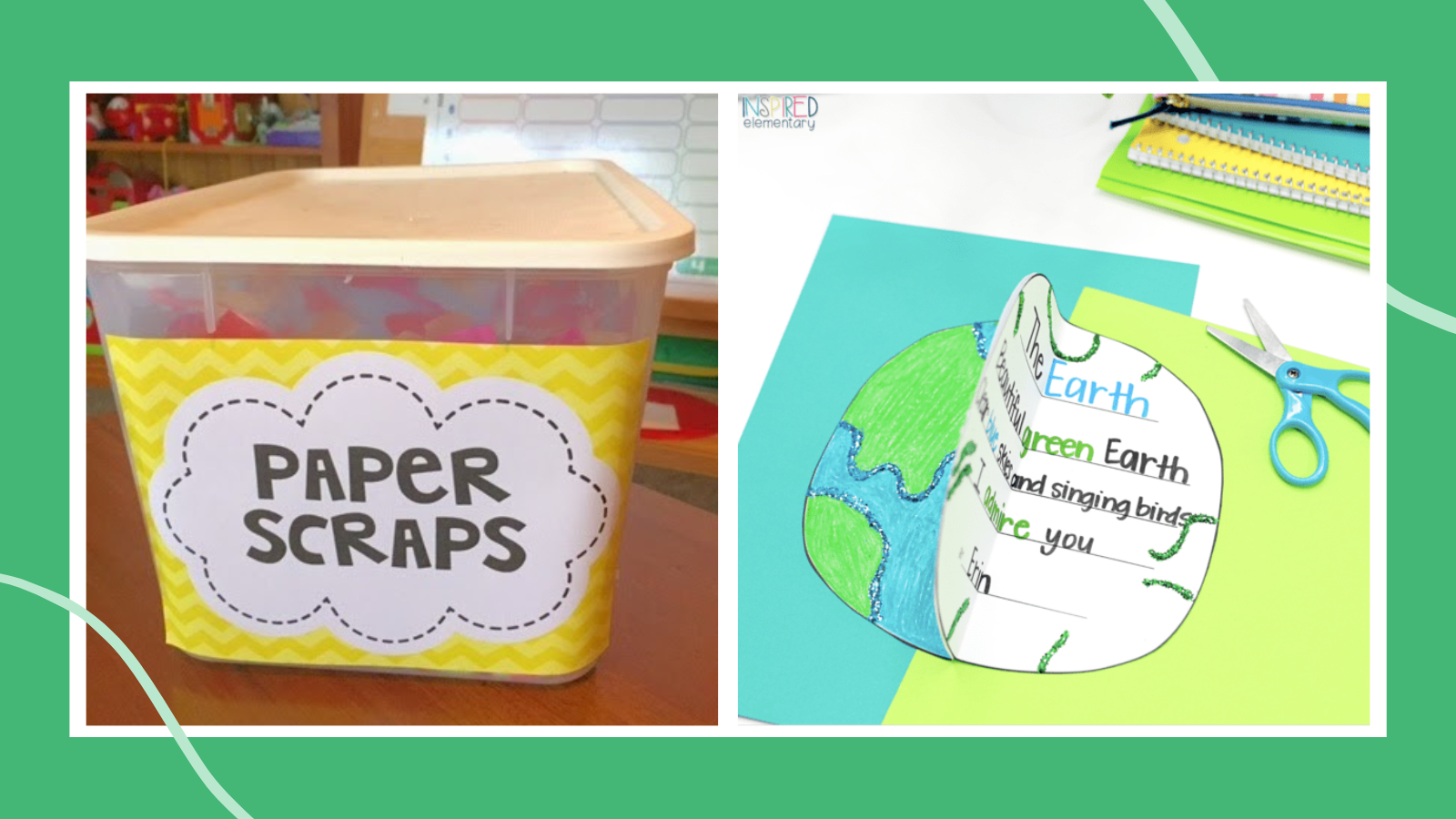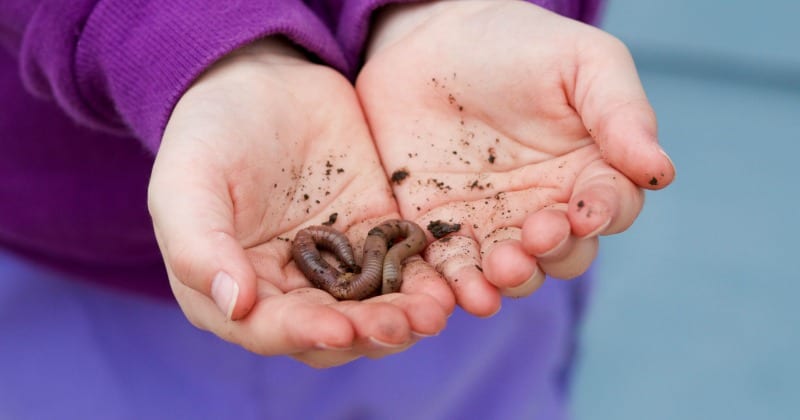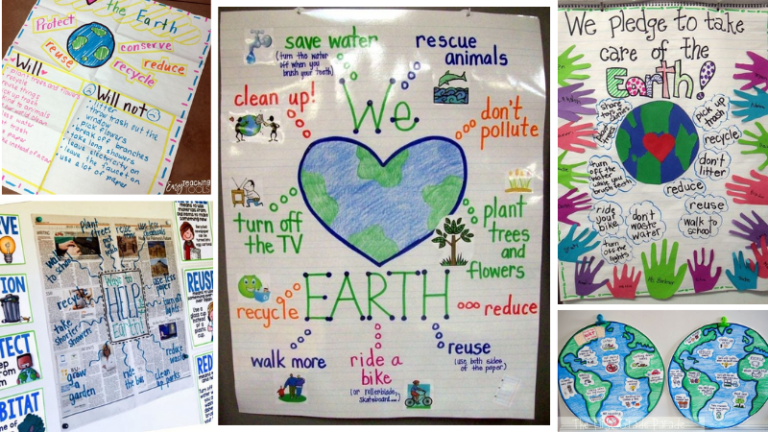Recycling in your classroom can easily be made a daily activity. Try implementing one or more of these recycling activities into your regular routine, and before you know it, recycling will be second nature to your students. Recycling instills a lifelong habit of creating sustainability, and you can show them that even the smallest actions matter!
1. Start with a recycling quiz
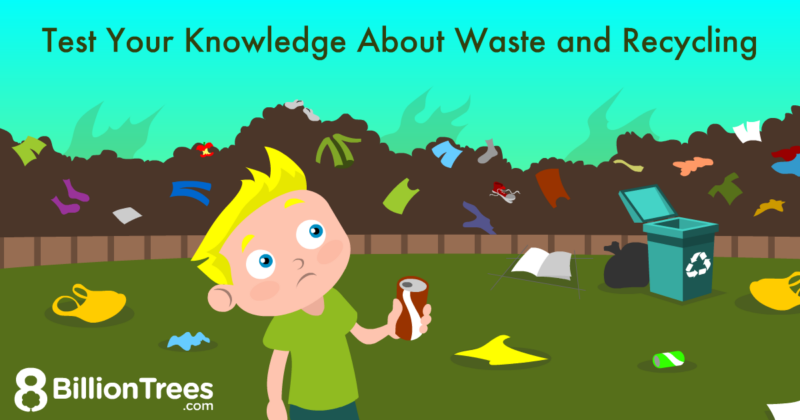
Everyone knows what garbage is. But how much do your students really know about recycling? For example, what percentage of our trash can be recycled? How many years does it take for plastic to decompose? Test their knowledge with this colorful quiz. Then start doing the research.
Learn more: Recycling Quiz
2. Add recycling lessons to your lesson plans
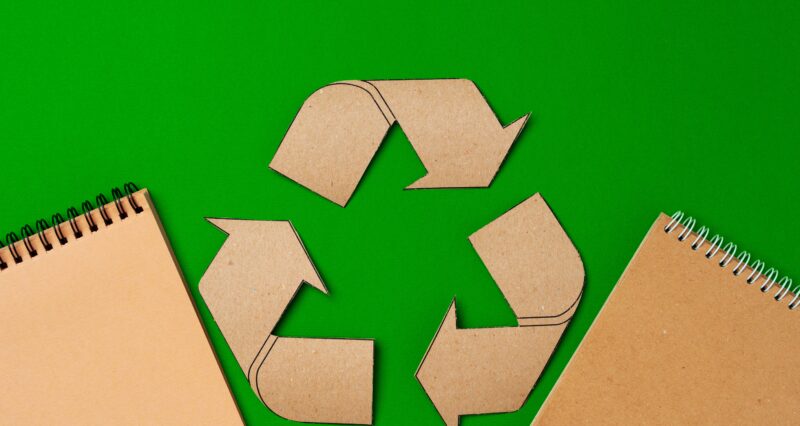
Wondering how to incorporate the principles of Reduce, Reuse, Recycle into the classroom in order to pass them on to the next generation? Check out these 11 Reduce, Reuse, Recycle Lesson Ideas for every subject. These recycling activities can help students explore how to put this phrase to use in many different ways.
Learn more: Project Learning Tree
3. Read books about recycling
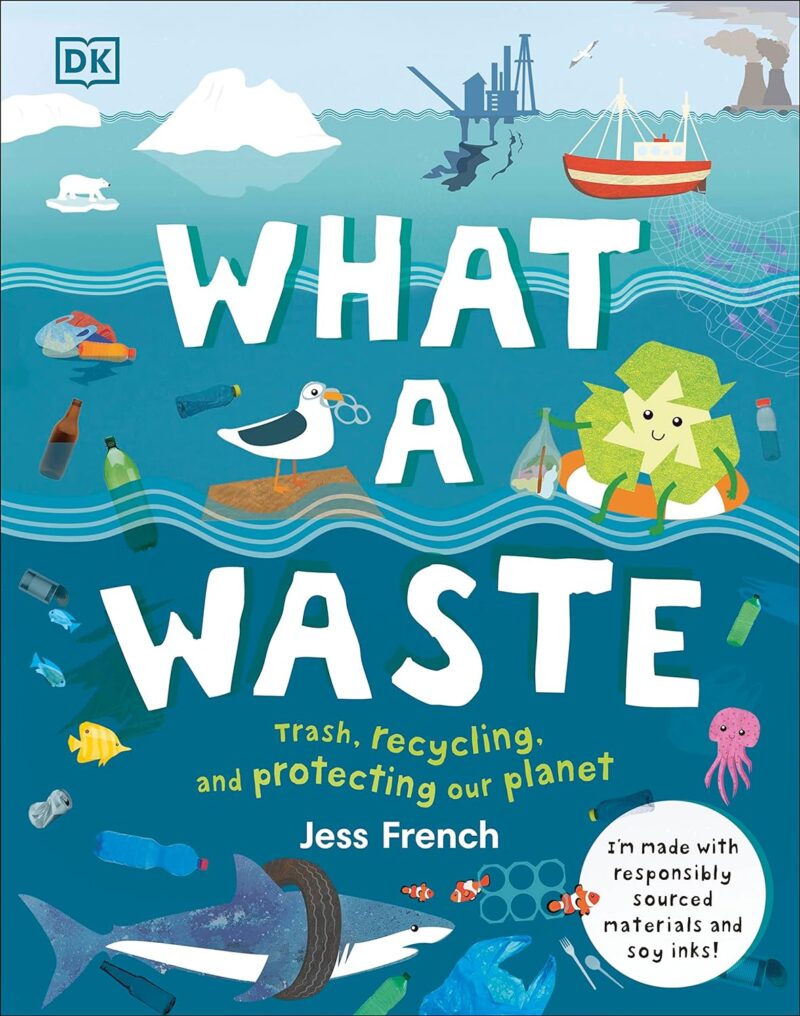
Picture books are always a good idea for introducing kids to important topics. Check out the intriguing titles at the link below and get your students amped up about making a difference through recycling.
Learn more: Children’s Books About Recycling on Amazon
4. Use recycling writing prompts
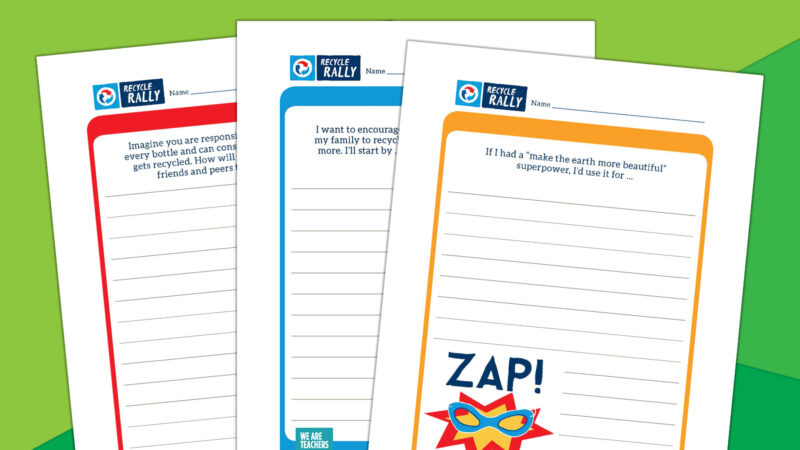
Mix up your daily journal or writing activities by giving students recycling-themed writing prompts. Get some free prompts here to get your students thinking about recycling in completely different ways.
5. Hold a coat or clothing drive
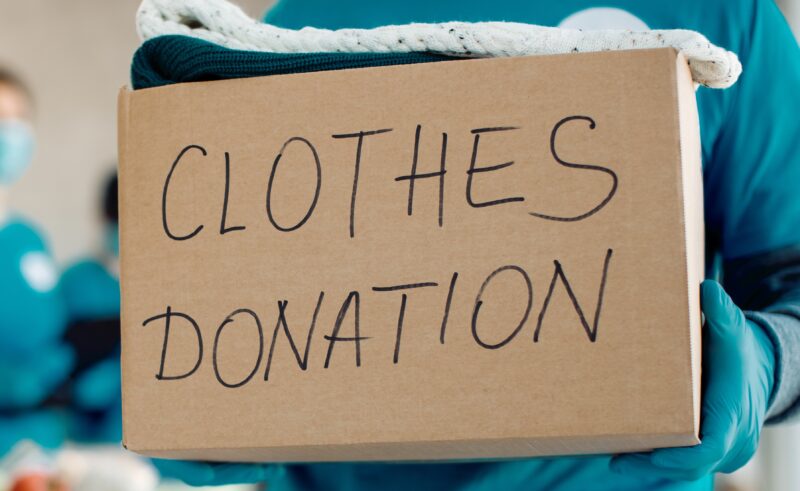
This is a fantastic way for kids to extend the life of their own belongings while helping someone in need. Ask students to bring in gently used items, then hold a garage sale at the school and sell the collected clothing for a very low price, or even offer them for free. Another option is to donate clothing items to a local organization such as a homeless shelter or nonprofit that serves low-income populations.
Learn more: Good Deed Tuesday
6. Hold a classroom or school recycling contest
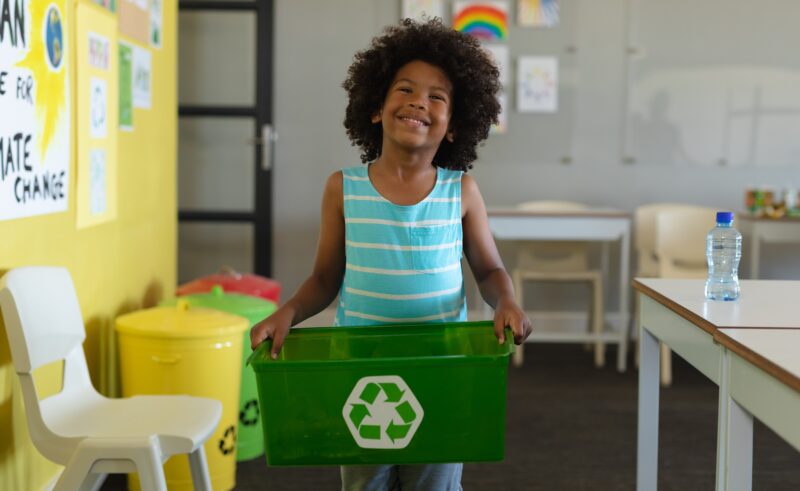
Which team can recycle the most in a day, week, or even a month? This is an easy challenge to execute—just get multiple recycling bins and start collecting. How you run the contest is up to you, but here are a few ideas: Divide up your class to form two to four different teams, challenge another classroom in the school, or even have a teachers-versus-students contest.
7. Take a field trip to a recycling facility
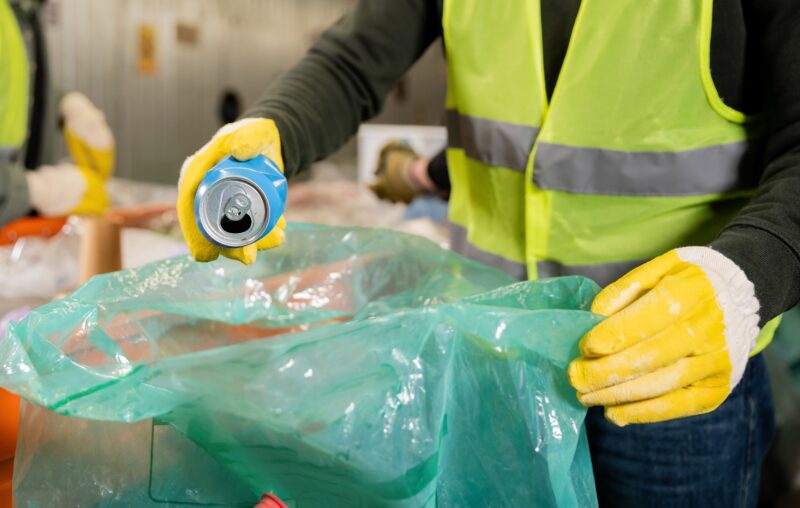
If your community has a recycling facility nearby, see if they coordinate tours. Seeing the work in action can have a much greater impact on students than just studying it. And if your field trip budget is already maxed out, try a virtual tour.
Learn more: PBS Learning Media
8. Play recycling games
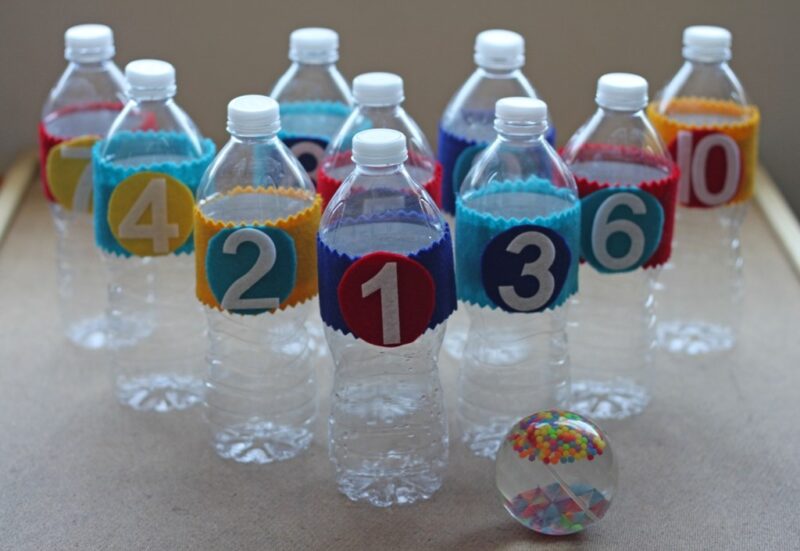
Recycling games and activities for kids can help them learn about the hazards of pollution and ways of reducing it. Eco-warriors bottle bowling, tumbling towers, or a recycle relay are just a few ideas.
9. Create recycling anchor charts
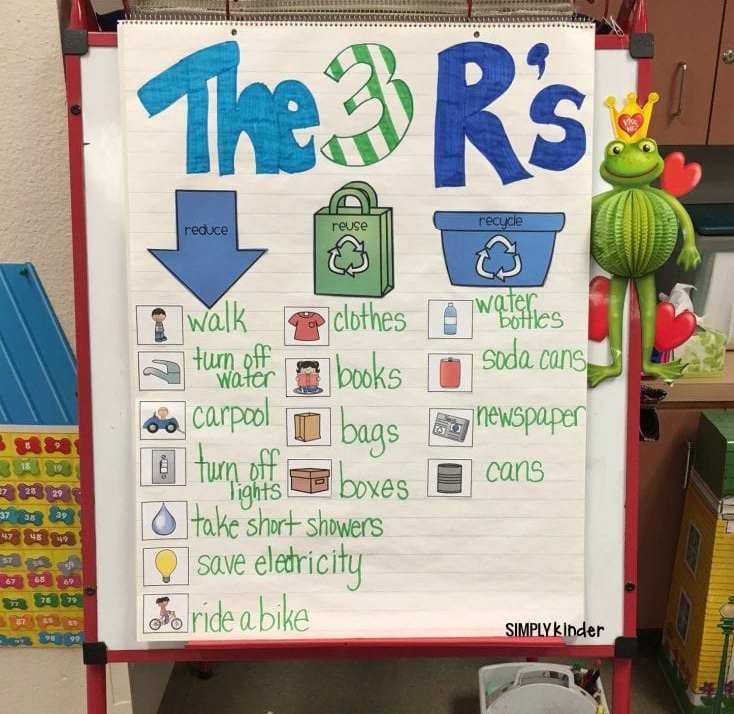
Anchor charts are a great way to help elementary students learn. They are also a good way to encourage classroom discussion. Remember that anchor charts are meant to be created along with your students. So begin by charting out a main idea or question and then build the chart by getting your students’ responses.
Learn more: 15 Fantastic Sustainability and Recycling Anchor Charts
10. Have an upcycling challenge
Encourage students to think about upcycling something either in the classroom or from home. By encouraging students to give something new life, like this Guess Who board, they’ll be more likely to do something similar in the future.
11. Combine Earth Month with Poetry Month
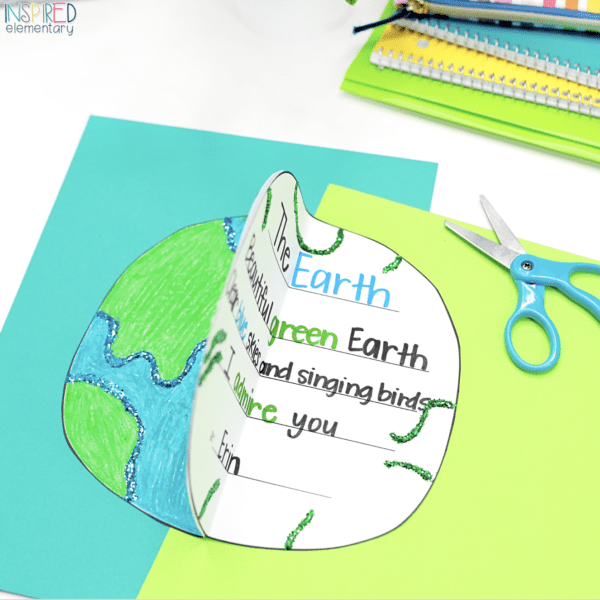
Did you know they’re in the same month? Yep, they’re both in April, so we think this is a great excuse to combine the two. Challenge students to create a recycling poem. We love this haiku activity from Inspired Elementary.
12. Research programs that handle more challenging recyclables
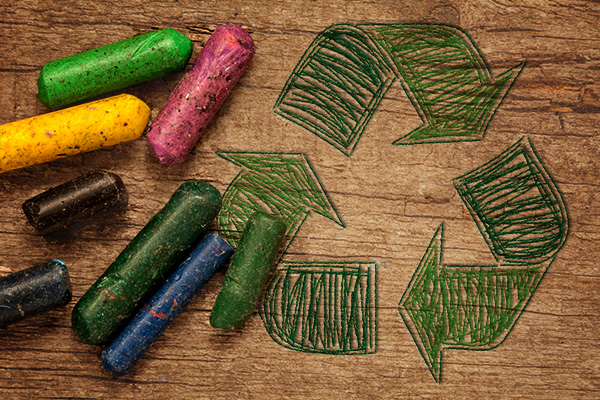
Paper, aluminum cans, and plastic bottles are all items that students can see being recycled every day. But what about items like broken crayons, batteries, or old electronics? Start by dividing the class into several small groups and assign each of them a list of items that are more challenging to recycle. Then have them research to learn how those items can be recycled. As a final activity, they can present their findings to the class. Here’s one to check out with the National Crayon Recycle Program.
13. Play bingo and learn as you go
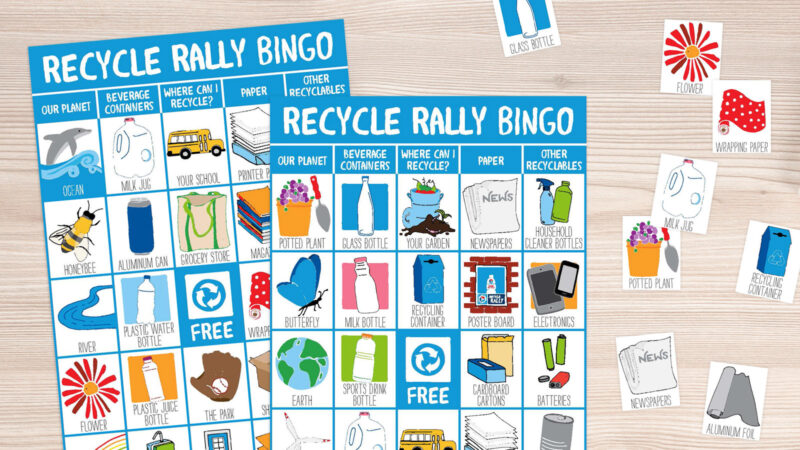
Practice separating recyclable items from trash by following the bingo cards of this printable Recycling Bingo Game! A fun activity for kids that will introduce them to the basic ideas of recycling.
14. Hold a trick shot contest
We’ll always be fans of this Trick Shot Recycling video featuring teacher Jonathan Hodge. It’s a fun way to take recycled items you collect and then trying to do do trick shots. There are some impressive ones in this video!
15. Create a prize bag of upcycled items
Get your students’ parents involved by asking for items to use for the classroom prize bag. Give them suggestions—toys from restaurant kids’ meals, little freebies from conferences, and other odds and ends—and you’ll be surprised at the items you can collect. Students will love picking a prize from the “reuse” bag when they hit different milestones and goals.
16. Upcycle plastic containers
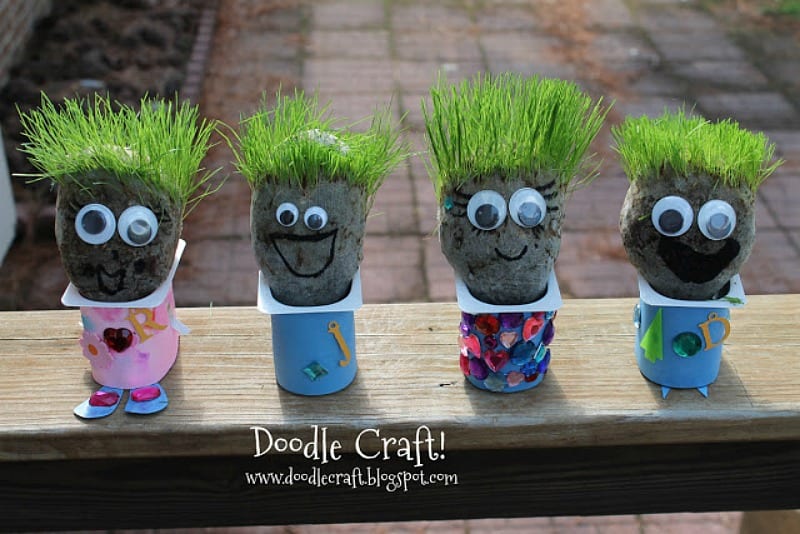
You can find oodles of plastic containers around the house that make for organizers and more. Challenge your students to look around their homes or in their recycling bins to find something that can be upcycled or reused. For instance, a yogurt container can be used as a planter or crayon holder, a plastic bottle can be quickly transformed into a vase, and baby wipe containers can hold just about any classroom odds and ends.
Learn more: Doodle Craft
17. Hold a recycling poster contest
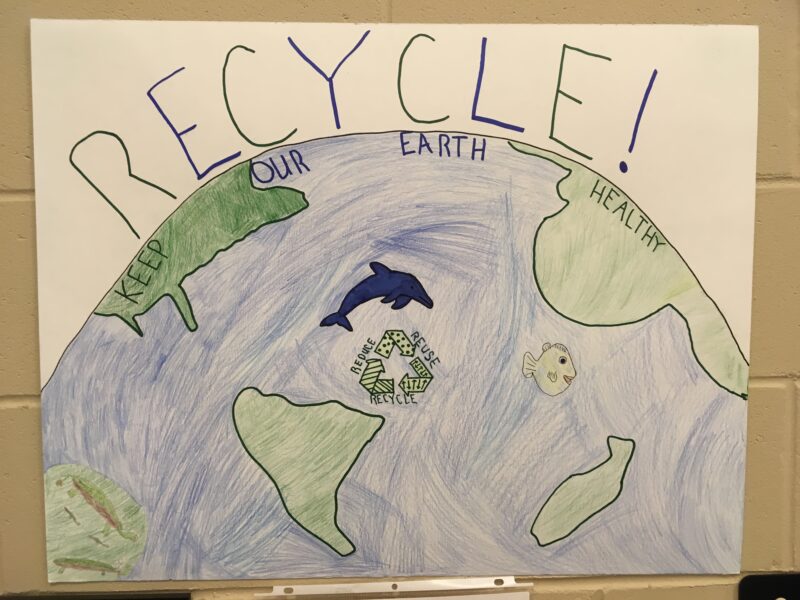
Hanging kid-made posters can send a strong message. Challenge your students to a create-a-poster contest and let them use their imaginations to inspire others. Ask students for their input about where the posters should go and also talk about what you hope the posters do for the school.
Learn more: WMCSD
18. Create your own infographics to hang in the classroom
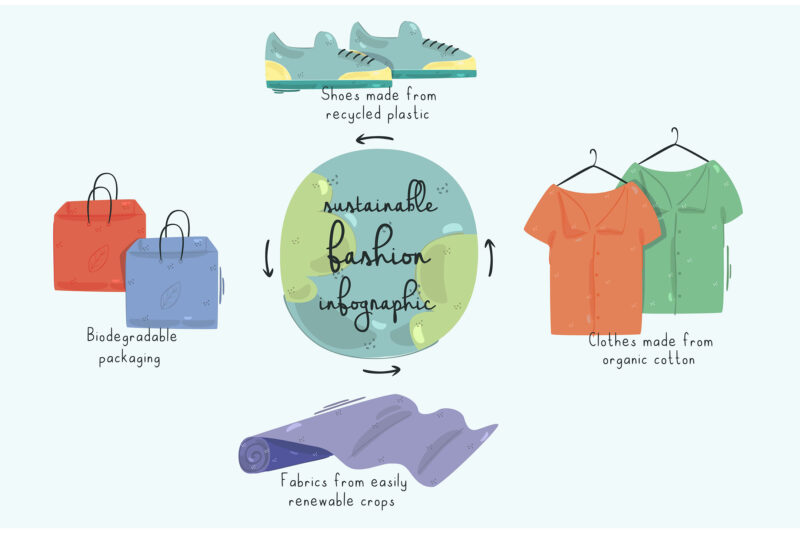
Infographics are fun representations of important details. Assign students to small groups and have them research statistics and facts about recycling. Then challenge them to create their own infographic, presenting what they learned in a visual way.
19. Commit to zero waste
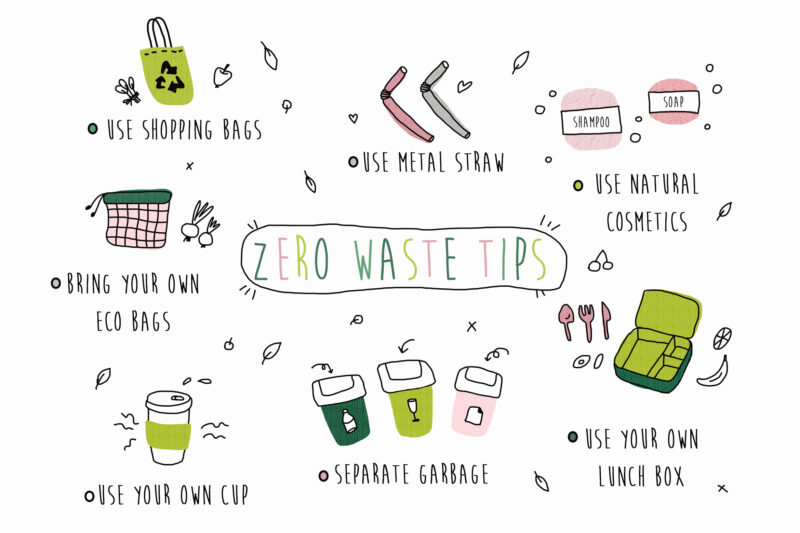
Start a committee to encourage your school to aim for zero waste for all school events such as class picnics, field day, assemblies, etc. Talk to representatives at your school district about moving to zero waste in your school cafeteria. Share the guide on zero waste with students to take home to their families.
20. Start a Green Club
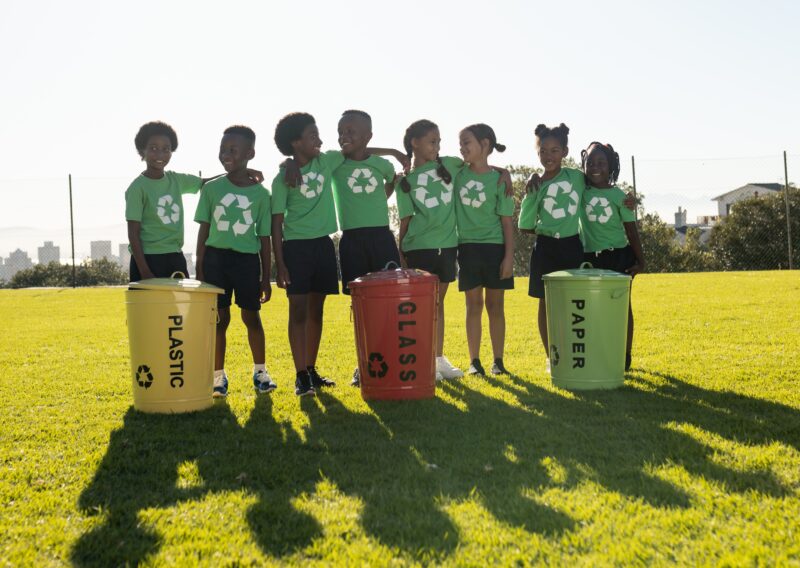
Green Clubs are a great way to bring environmental activism into the spotlight at your school. It might seem daunting to start one of your own, but it doesn’t have to be. Start small—the club can be established with just a few engaged students and a single purpose. Check out the link below for 10 super-helpful tips.
Learn more: Mommy Poppins
21. Welcome worms into your classroom!
Worms?! You betcha. Vermicomposting is a method of composting using red wiggler worms. Long story short, the worms eat garbage and turn it into gorgeous, nutrient-rich compost—they are definitely doing a version of recycling. You can get started with this fascinating hobby in a relatively small space, and the kids will love it!
22. Do the egg drop challenge with recycled materials
You’ve probably heard of the egg drop challenge. Well in this instance, encourage students to make their creations using all recycled materials. This is a great way to get students thinking outside the box!
23. Watch videos about how recycling works
Be sure to cover the basics. You might think students have an understanding of how recycling works, but it might not be as clear as you think. Start with two great videos: Life of a Plastic Bottle and Life of an Aluminum Can. Videos are a good way to start the conversation about how recycling works, and they’ll help students see that their actions really do matter.
24. Plant a garden or a tree
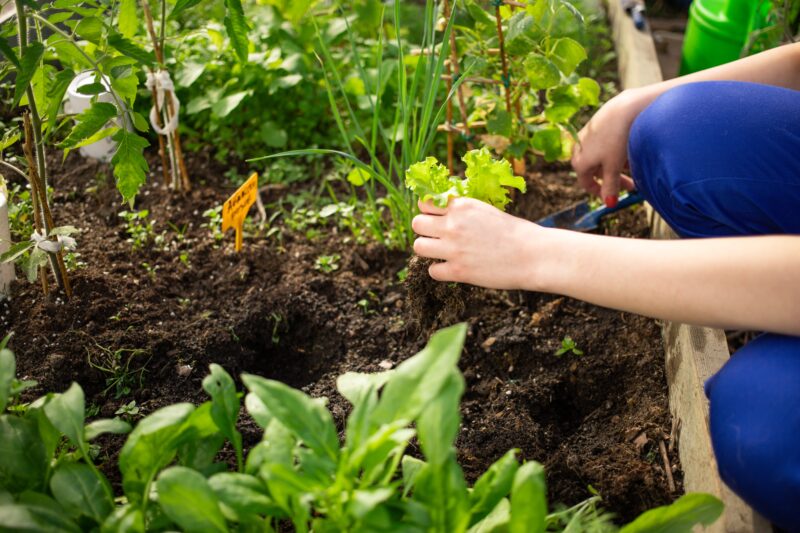
In general, gardening is an excellent hobby to implement in schools, as it gives back for years and years to come. Plus, you can use your garden for fun recycling activities. Get outside with your students to collect seeds, pods, and even nuts. They can plant the seeds at home in their own backyard or in their neighborhood.
25. Leave no scraps behind
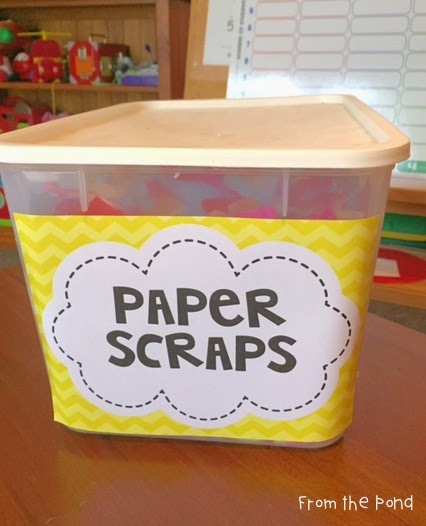
Establish a rule in your classroom that both sides of a piece of paper must always be used. If students have a piece of paper that hasn’t been used on the back, have them put it in a designated scrap paper container like this one from A Blog From the Pond. The backside is great for notes and artwork.
26. Make your own recycled paper or seed paper
Now that you’ve established a method for collecting paper, it’s time to do something with it. Learn how to turn scraps into new paper for your classroom. This process can be a bit involved, and it might be best when spread out over a couple of days, but it’s a wonderful hands-on lesson for students. And you can take it one step further and make seed bombs like in the video here.
27. Hold a book or toy swap
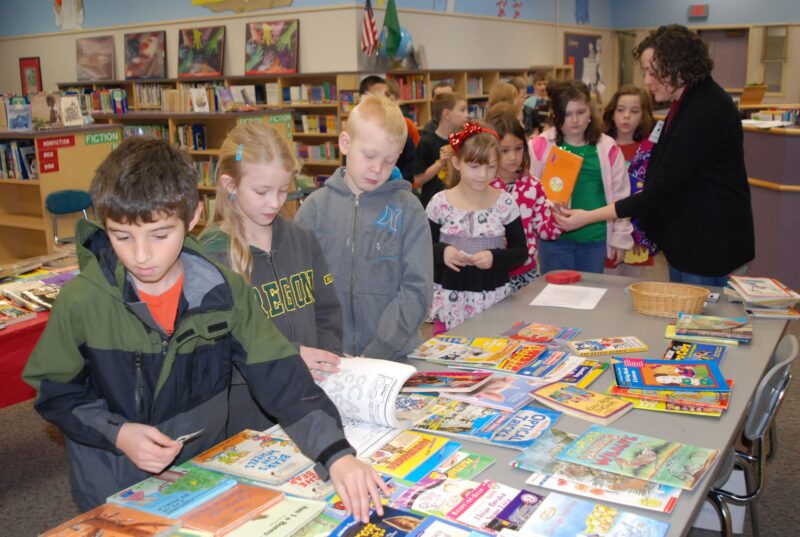
Instead of buying new books or toys, why not hold a giant swap meet at school? So many kids have things that are perfectly good but they just no longer use them. Instead of filling up the landfill, why not pass them on to someone who will enjoy them? We love this idea from a school in Washington, captured by The Columbian.
28. Learn about different recycling jobs
This video provides a great overview of recycling careers, and it just might inspire one of your students to learn about a future they never even considered.
29. Make art from recycled materials
Fill an area of your classroom with recyclable objects—cans, bottles, egg cartons, etc. Then have your students use them to create art. Encourage students to be creative and bring in their own items as well. This video shows making calm-down jars, which you can do with recycled jars or containers.
30. Produce a PSA about recycling
A PSA (public service announcement) is a fun way to get kids to further research recycling and turn their newfound knowledge into a video. Encourage students to research PSAs and really work on their overall messaging until it’s perfect. You can assign different roles, like director, writer, producer, and on-screen talent. Once it’s ready, film the PSA, edit it, and then share it with parents and the public.
31. Sponsor a community cleanup day
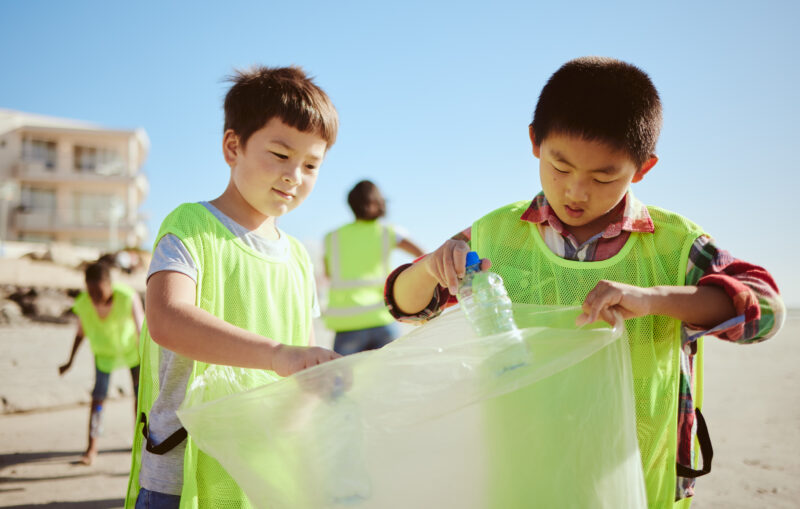
Make flyers and recruit participants to clean up your community. Collect recyclable materials and make sure they are properly turned in to recycling facilities. Not only will you beautify your neighborhood, but you’ll also help the environment.
Learn more: National Cleanup Day
32. Hold a green science fair
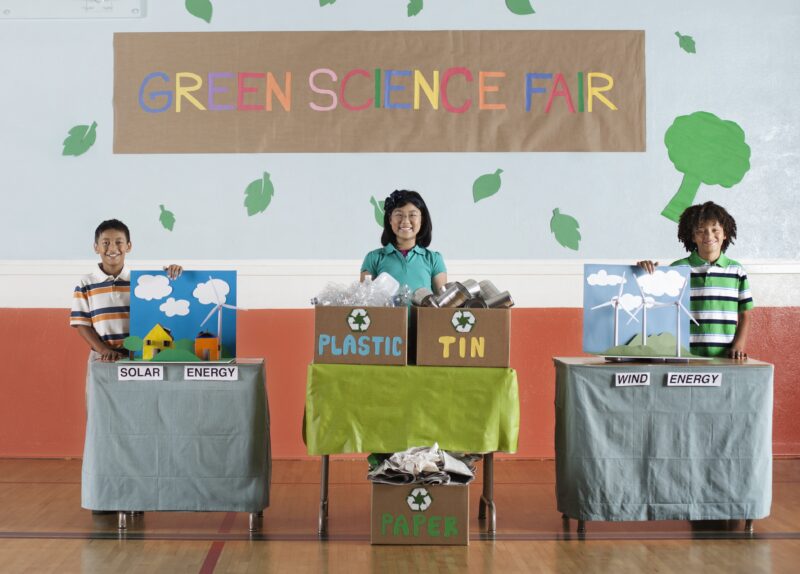
Need an excuse to have a themed science fair? Encourage students to research green science and ways we can all get involved through recycling and sustainability. Whether you do a big event or just have a small classroom project, it’s fun to have a theme.
33. Make the most of your old markers
It’s not as messy as you might think. Try this activity in your class and turn old stale markers into paint. Your students will definitely be impressed as they see their old markers come to life in a new way.
34. Ditch single-use waste
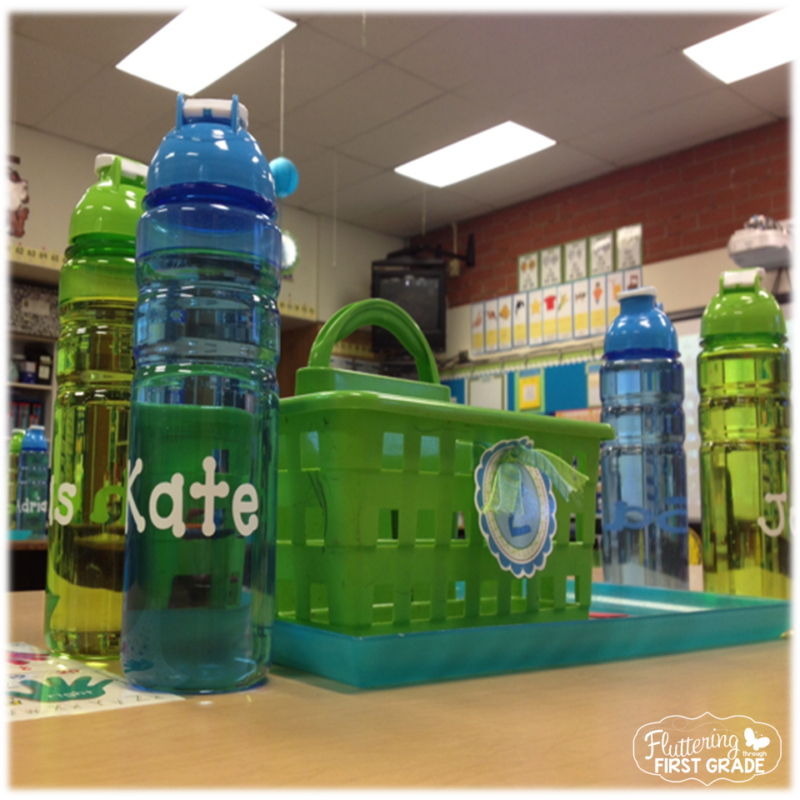
Encourage students to come up with ways they can eliminate single-use waste. Whether it’s by packing their lunches with different materials or using reusable water bottles in the classroom, there are likely things they can start doing right away. Thanks for inspiring us, Fluttering Through First Grade!
35. Recycle crayons into fun shapes
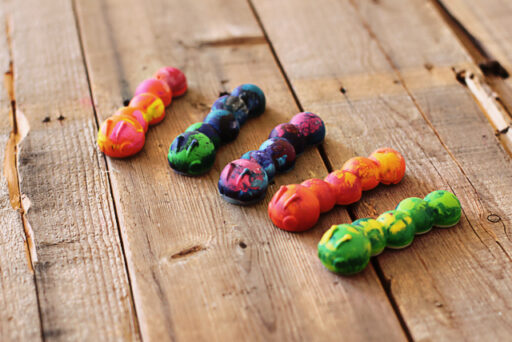
This activity is not only a great lesson on not letting things go to waste, it also results in something new for your students to enjoy! Have your students break used crayons into small pieces and then place them into paper cups. Then turn them into new shapes like they did here on Lil Blue Boo. She has great tips on how she made these centipedes.
36. Teach a math lesson with a recycling theme
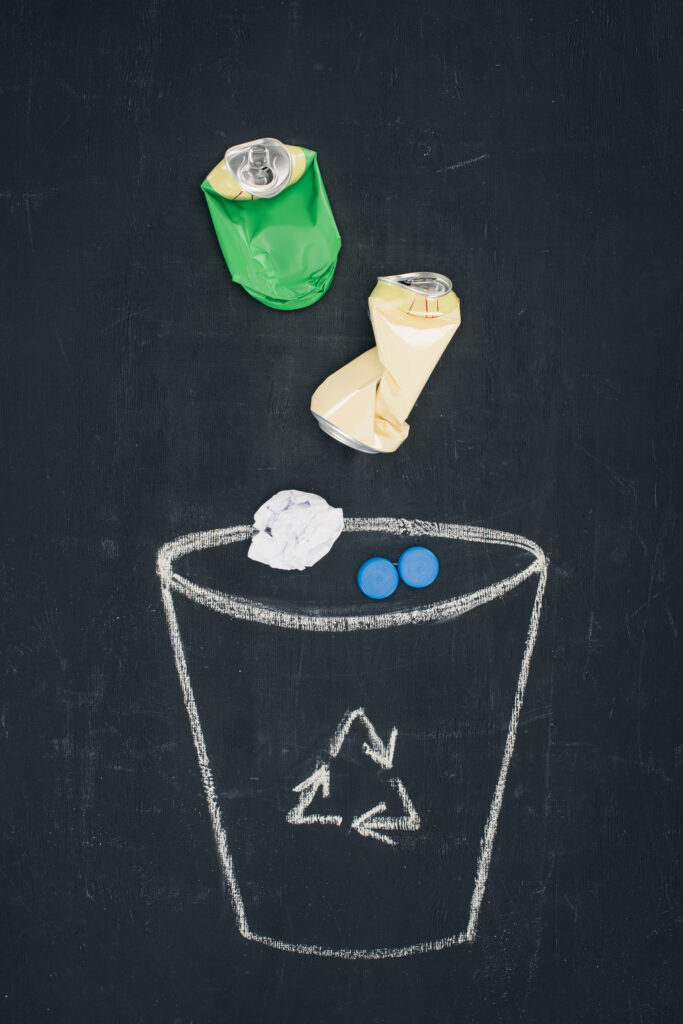
Incorporate recycling activities into your math lessons. In this activity, students will estimate the percentage of various types of trash that they generate (e.g., paper, plastic) and calculate the pounds of each based on the U.S. daily average of 7 pounds per person. Then they will create a pie chart as they consider how they can reduce their waste.
Learn more: PBS Learning Media
37. Make a paper roll bird feeder
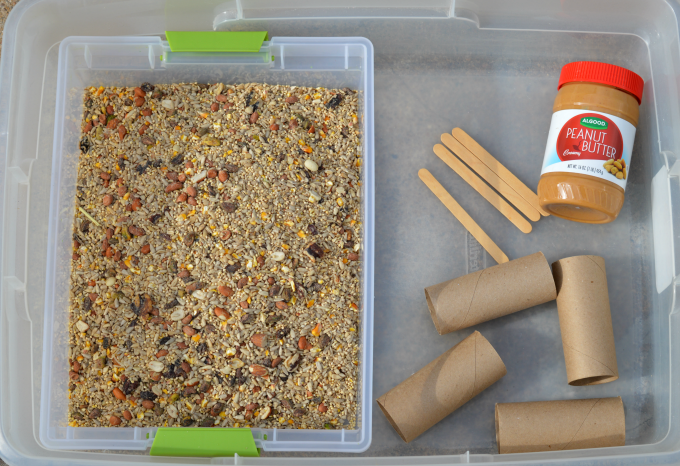
Did you know that about 184 million toilet paper rolls get thrown away each year? Why not put them to good use by turning them into bird feeders? Not only will it help our fine feathered friends, it will cut down on a ton of waste.
Learn more: The Resourceful Mama
38. Learn how to sort recycling

So many people have good intentions but have no idea what goes where when it comes to recycling. Kids who learn how to recycle in school are one of the best resources for teaching the adults in their lives. Share this information with your students and help make the world a better place.
Learn more: Clean Green Rush
39. Make a robot from cardboard boxes
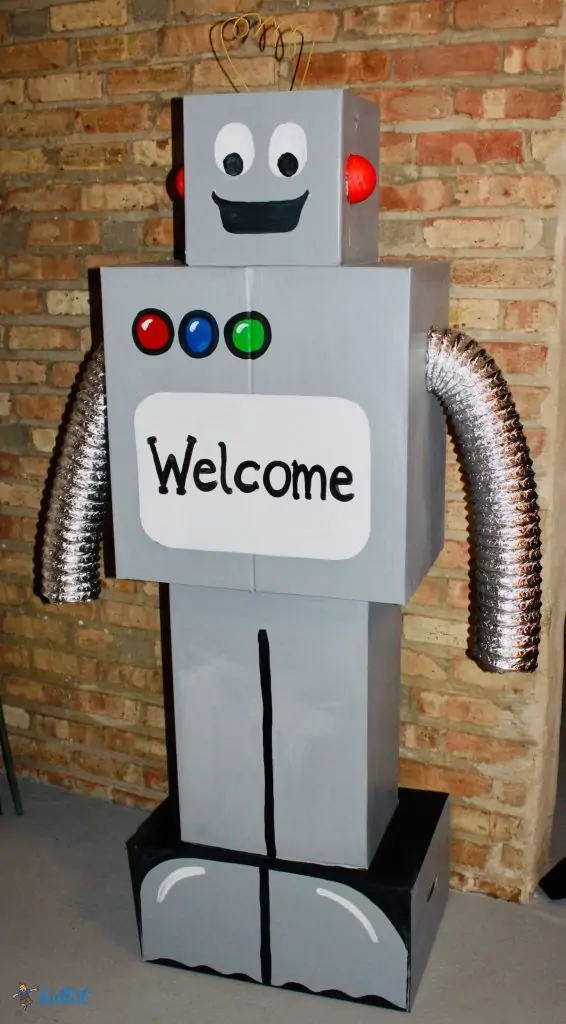
Looking for more recycling activities that save materials from the landfill? Building a cardboard box robot is a fun STEAM challenge and a recycling project all rolled into one. This version features silver and black paint and aluminum HVAC duct arms.
Learn more: Kidlist
40. Have students make posters
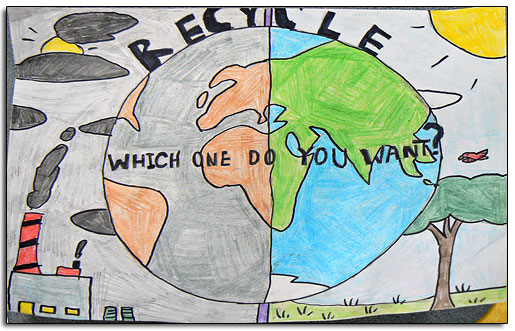
Sometimes those hallways just need a little refreshing. You can hold a contest or just get students to create art to put around the hallways. Thanks to the students of Kent Center School for inspiring this idea. Check out their poster entries here.
41. Discover new things to recycle
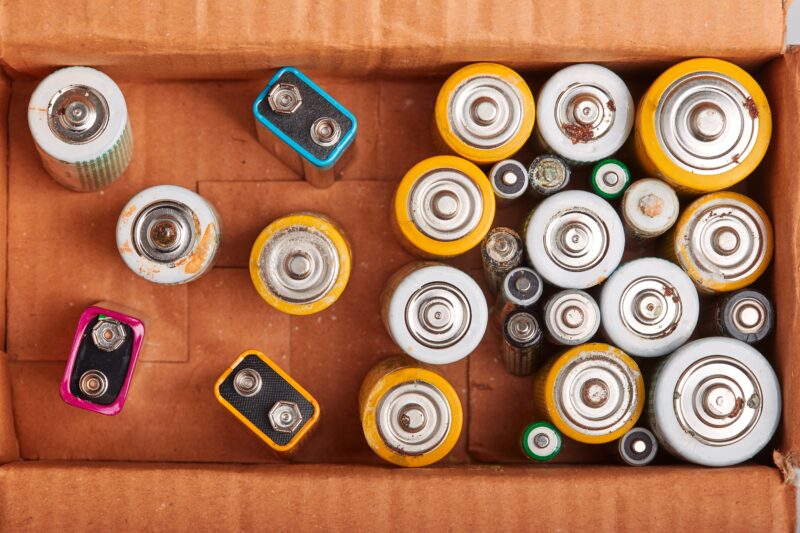
Part of recycling is always learning about new ways to go about it. Encourage students to identify at least one thing they didn’t recycle before that they are going to start recycling now. Talk about it, and make it a goal.
If you liked these recycling activities, check out Crafts and Activities That Utilize Upcycled Materials.
Looking for more articles like this? Be sure to sign up for our newsletters!
